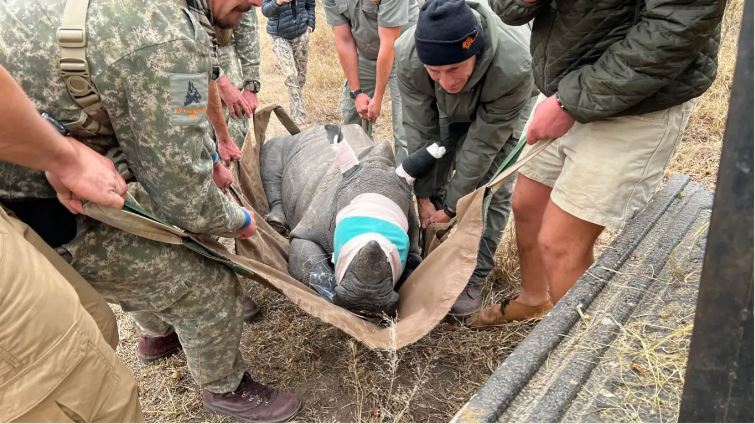The Sabi Sand Nature Reserve in the Greater Kruger National Park, together with safari operator Singita and rhino rehabilitation centre, Care for Wild, has completed a remarkable rescue operation and rehabilitation effort to save the life of a rhino calf that was left stranded after its mother was killed by poachers.
In August, security drones captured footage of the seven-month old calf walking alone in the bush at night.
“It was too dark for a helicopter to fly in, and with high concentrations of hyenas and lions around, the team feared the calf would not survive the night,” the reserve said in a press release.
Determined to keep the calf safe, the team used several DJI Mavic drones to keep a watchful eye on the orphan from 20m above, alternating drones as soon as batteries ran flat.
At first light, the rescue team from Sabi Sand Nature Reserve – led by Singita’s anti-poaching unit – and members of Care for Wild (the world’s largest rhino sanctuary dedicated to the rescue, rehabilitation and release of orphaned rhino) swiftly darted and moved the calf to Care for Wild’s intensive care unit, where he received 24-hour care, intravenous fluids and milk to stabilise his condition.
The calf, named Mavic after the drones that saved his life, was very traumatised, but is now on the road to recovery. Apart from learning to trust his caregivers, one of his most important milestones was finding comfort and companionship with two older rhino orphans at Care for Wild. He followed them everywhere and has settled into his new rhino crash, where he will stay for up to three years.
Inge Kotze, Head of Conservation, Singita Lowveld Trust says, “Mavic is both a story of heartbreak and hope – illustrating the tireless efforts, immense passion and dedication of remarkable teams. We trust that he’ll thrive in the wonderful care of his guardians and we, as Singita Lowveld Trust, will continue to do everything we can to support their efforts in the fight for our rhino.”
Sponsoring Mavic to help save a species
The Singita Lowveld Trust (Singita’s non-profit conservation partner in South Africa) is sponsoring Mavic’s first year of care, which will cost around R233 000 (€13 100).
The Trust is calling for further funds to support Mavic’s additional two years of care, which includes continued weaning and feed costs, followed by the final stage of releasing Mavic back into the wild where he rightfully belongs.
Watch the video of Mavic’s remarkable rescue operation here.
























